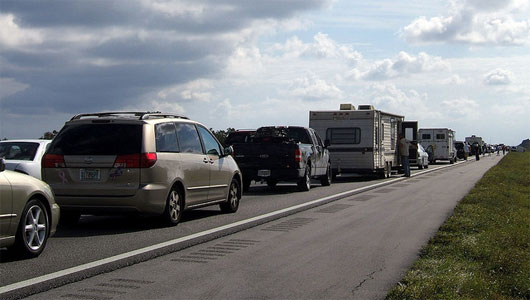By DiscoverTheOdds.com
Updated November 17, 2013
 We are entering the final hours before election day, Tuesday, November 6, 2012. Whether you’re rooting for President Barack Obama or Governor Mitt Romney, the question is, “What are the odds that your candidate will win the 2012 presidential election?”
We are entering the final hours before election day, Tuesday, November 6, 2012. Whether you’re rooting for President Barack Obama or Governor Mitt Romney, the question is, “What are the odds that your candidate will win the 2012 presidential election?”
Listen instantly to this episode below!
Or click here to listen in iTunes.
Podcast: Play in new window | Download
Episode 2: The 2012 Presidential Election – What Are The Odds? – Transcript
Hi, and welcome Episode 2 of “What Are The Odds?”–the official podcast of DiscoverTheOdds.com, the best place to go to find the answers the all those questions that begin with the words, “What are the odds?” I’m Brishette Mendoza and I’m the host of this podcast. Thank you for joining us.
So if you are still breathing, if you have a pulse, if you are alive at all in America today–then of course you realize that the election is this Tuesday, November 6th–we are entering the final hours before the election. And we are making a lot of very important decisions on the the local, and state levels, and on the national level, we are voting on who will be the next president of the United States of America. Whether you’re rooting for President Barack Obama or Governor Mitt Romney, the question is, “What are the odds that your candidate will win the 2012 presidential election?” Actually, that’s a very good question, and it’s such a good question that just about everyone has their own version of the answer. In addition to all the campaign ads you’ve seen, no doubt you’ve seen an overwhelming number of election polls, forecasts, electoral maps and more than enough political commentary.
In this episode of the podcast, and in the show notes for this episode which you can find at DiscoverTheOdds.com, we are going to cut through the noise. First, I’m going to talk about what “winning” is as far as the presidential election is concerned. Second, I’m going to touch on why this particular election seems so difficult to forecast. And third, we’re going delve into three sources of information–now we can’t cover everything, so just three–where people are looking in order to get an idea of what the odds are for each of the candidates: one-you’ve got prediction market trading, two-you’ve got polls and averages of the various polls on the state and national levels, and three-you’ve got multifaceted forecasts that take into account a plethora of factors. And so, by the end of this episode, hopefully you’ll have a better idea of what the odds are that your candidate will win the 2012 presidential election or at least a better idea of which forecast you find to be the most compelling.
First, what is winning? Well here’s the thing, winning the U.S. presidential election is about winning the votes of the American people, but, more precisely, it’s about winning the popular vote on a state-by-state basis in order to win a sufficient number of electoral votes. The electoral college consists of 538 electors and to be elected president of the United States, a candidate needs a majority of 270 electoral votes. The number of electors belonging to your state equals the number of members in your state’s Congressional delegation, so that’s one for each member of the House of Representatives plus two for your Senators. Each candidate running for President in your state has a group of electors and these electors are usually chosen by the candidate’s political party. When you vote for president, you are actually voting for your candidate’s electors.
And another thing that’s important to remember, is that with the exceptions of the states of Maine and Nebraska, which each use a form “proportional representation,” the states use a “winner-takes-all” system that awards all electors to the winning presidential candidate. With a “winner-takes-all system,” even if the margin of victory in a state is just 50.1 percent to 49.9 percent, the winning candidate is awarded all of the electoral votes for that state. For instance, Ohio has 18 electoral votes. The candidate who receives even just 50.1% of the popular vote in Ohio receives all 18 of Ohio’s electoral votes.
So, when you see national polling data for the presidential election as opposed to state level polls, remember that the President is not chosen by a nation-wide popular vote. Electoral votes are awarded on the basis of the popular vote of each state. It is the Electoral College vote totals determine the winner of the presidential election. We saw that dichotomy played out in 2000, as you recall, when Mr. George W. Bush received fewer national popular votes than Mr. Al Gore but received a majority of electoral votes and thus, won the election.
Second, why is this particular election so difficult to forecast?
Well, let me begin with one of more recent developments and that’s Hurricane Sandy. In addition to the loss and damage of property as well as the tragic human toll of the storm, some people would argue Hurricane Sandy has disrupted our ability to accurately ascertain the state of the presidential race due to interruptions in polling and that moreover, in the aftermath of the hurricane, we may see lower voter turnout than we had previously anticipated as well as other complications. Officials and analysts are still assessing the impact of Hurricane Sandy. But still, I’ll say this: when it comes to this election, the real root of the uncertainty continues to be how close the election truly is. What do I mean by that?
When we look at the national polls, what we see is a virtual tie. This election is closer than at least the last three presidential elections. This past Tuesday, October 30, one week before election day, Mr. Obama and Mr. Romney reached a tie, according to the Real Clear Politics average of the national polls. In 2000 one week before the election, Mr. Bush had a 3 to 4 point lead in the polls over Mr. Gore. One week before the 2004 election, Mr. Bush had a 2 point advantage over Mr. John Kerry. And in 2008, one week before the election, Mr. Obama had 6 point lead in the national polling averages over Mr. John McCain.
Now, let’s focus on those three sources of information I mentioned earlier–prediction market trading, polling averages and multifaceted election forecasts.
First, prediction market trading. The big prediction market out there is Intrade. Intrade.com is a website where people bet money on the outcomes of non-sports-related future events like political, entertainment and financial events. Here’s how it works. On Intrade, people bet on predictions, meaning that people buy and sell shares related to the various predictions. So, the current price in a given contract or bet is regarded as a sort of consensus about the probability that the prediction will come true. In this case, the bets we’re interested in are “Barack Obama to be re-elected President in 2012″ or “Mitt Romney to be elected President in 2012.” Intrade has been spot on in many of its predictions, yet at the same time, it does not have a perfect track record. For example, earlier this year Intrade forecasted a 75% chance the Supreme Court would overturn the individual mandate of the health-care law: Intrade was wrong about that. However, when it comes to both of the presidential elections the site has offered trading for so far (it is a relatively young site), Intrade has been right on the money, so to speak. For the very close 2004 election between Mr. Bush and Mr. Kerry, the Intrade market correctly predicted the outcome in all 50 states. In the 2008 election, Intrade correctly predicted the outcome of the election and its electoral vote forecast was off by one electoral vote.
So here we go–drum roll please. Concerning the 2012 Presidential Election, Intrade is forecasting: a 67.3% probability that Mr. Obama will win and a 32.8% probability that Mr. Romney will win. Trade prices on each market forecast that Mr. Obama will win 281 electoral votes and Mr. Romney will win 235. Colorado’s 9 votes now fall into the tossup category, with a probability of 50.0% for Mr. Obama and 48.7% for Mr. Romney. Virginia’s 13 votes are also considered tossups, with a probability of 54.6% for Mr. Obama and 45.5% for Mr. Romney.
Second, let’s talk about polls and averages of polls. Specifically let’s turn our attention to Real Clear Politics. RealClearPolitics.com, which was launched in 2000, takes the various polls for presidential and congressional races and aggregates them into averages. The RealClearPolitics average includes polling data from sources such as Rasmussen, Gallup, Fox News, Pew Research, ABC News, the Washington Post, CNN/Opinion Research, Politico, CBS/NYTimes, and the National Journal, to name a few. And based on state-by-state polling averages, Real Clear Politics also produces an electoral map with states labeled red or blue for the candidates and gray for toss ups as well as an electoral map projecting the outcome with no toss ups. In 2008, the final Real Clear Politics national average was just .3% off, it had pointed to 7.6 percent margin of victory for Mr. Obama, Mr. Obama’s actual national margin of victory was 7.3 percent.
Regarding the 2012 Presidential Election, the Real Clear Politics average of National polls shows Mr. Obama with 47.5% support compared to 47.3% for Mr. Romney. The Real Clear Politics No Toss Up States map forecasts 290 electoral votes for Mr. Obama and 248 electoral votes for Mr. Romney. The slight lead for Mr. Obama now seen in the national polling average only emerged after a period following the first presidential debate in which Mr. Romney held about a 1% lead. But with 1 week remaining, on Tuesday, October 30th, the two candidates tied in the national average and then Mr. Obama emerged with a small lead Wednesday, October 31.
A few notes, the national average includes–along with all the other poll numbers–the Gallup poll numbers for October 22nd-October 28th, which show Mr. Romney with a 5-point lead, at 51%. It is also worth noting, even during the period of Mr. Romney’s lead after the first debate, the Real Clear Politics No Toss Up States Map consistently projected fewer than the necessary 270 electoral votes for Mr. Romney while projecting more than the necessary 270 electoral votes for Mr. Obama.
Third, there are various presidential election forecasts, and now we’ll talk specifically about Nate Silver’s forecasts, featured on his FiveThirtyEight blog on the New York Times website, his blog is one the most talked about political blogs out there today. A little background, Nate Silver gained prominence in the political arena during the 2008 presidential election cycle, when he accurately predicted the outcome in 49 of the 50 states (he only missed Indiana, which Mr. Obama won by 1%). In 2008, he also successfully predicted the winner of all 35 elections for contested Senate seats.
On the other hand, there have been some misses. In the Senate elections of 2010, Silver correctly predicted the winner for 34 of the seats; he was incorrect about the other 3. As for the 2010 House races, Silver’s model was off about the net Republican seat gain by 8 seats, he predicted a net gain of 55 seats; the actual net Republican gain was 63 seats. But to be fair, this numbers did fall within the forecasts reported confidence interval. In terms of methodology, in short Silver attempts to balance the polls with demographic data, he also weights each poll on the basis of the pollster’s historical track record, sample size and recentness of the poll. Additionally, his methods tend to place greater weight on state-level polls over national polls.
Concerning the 2012 Presidential election, Nate Silver’s FiveThirtyEight blog forecasts that Mr. Obama will win 50.6% of the popular vote to Mr. Romney’s 48.3% of the popular vote. FiveThirtyEight forecasts roughly 306.9 electoral votes for Mr. Obama and 231.1 electoral votes for Mr. Romney and places Mr. Obama’s chances of winning the election at 85.1% to Mr. Romney’s 14.9% chance of winning.
At the other end of the spectrum, there are interpretations that argue that a Romney victory is just as plausible if not more likely than an Obama victory. Fox News polls show that both Mr. Romney and Mr. Obama have favorability ratings at over 50 percent, despite all of the money and energy President Obama’s re-election campaign spent on negative advertising. There is also an enthusiasm gap, Fox News reports, and that gap is reflected most clearly in early voting numbers. According to Pew surveys, in 2008 Mr. Obama led Mr. McCain 52 percent to 34 percent among early voters; this year Mr. Romney leads Mr. Obama 50 percent to 42 percent. Moreover, the latest Fox News poll of independent voters also shows Romney with a 7-point lead and the conjecture is that the remaining undecided voters will fall more in line with the challenger, Mr. Romney than with the incumbent, President Obama.
Michael Barone, Senior Political Analyst for the Washington Examiner, asserts that Mr. Romney will win the election, handily. Barone argues that it is Mr. Romney who has the lead in essential battleground states including Indiana, North Carolina, Florida, Ohio, Virginia, Colorado, Iowa, Minnesota, New Hampshire, Pennsylvania, Wisconsin. Barone posits that this lead, along with the others factors–the strength in Republican voter enthusiasm and turnout, and an edge among independent and undecided voters will carry Mr. Romney to a decisive electoral vote victory of 315 electoral votes to Mr.Obama’s 223 electoral votes.
Jay Cost of the Weekly Standard gives another reason for a likely Romney victory and that’s Mr. Romney’s advantage on the economy. Cost cites a recent NPR poll showing Mr. Obama’s job approval rating on the economy at only 47%. The poll also found that Mr. Romney is more trusted on the economy than Mr. Obama, 50 percent to 46 percent. Cost goes on to state that Mr. Romney’s edge on the economy shows up consistently in polls across the board, including in most of the state polls and it’s economic and fiscal issues that have consistently ranked at the top of a list of issues in the minds of most voters. Jay Cost asserts that it is difficult to the think of a historical precedence “where the electorate was so singularly focused on one set of issues, and the person trusted less on them nevertheless won.”
And that pretty much wraps it up. We’ve talked about what activity on Intrade indicates–a victory for Mr. Obama. We’ve talked about the closeness of the race according to RealClearPolitics national polling averages as well as what electoral map projections based on state-level polling averages indicate–a win for Mr. Obama. We’ve talked about what the FiveThirtyEight blog is forecasting–a very likely win for Mr. Obama. And we’ve also talked about interpretative forecasts or predictions put forth in other places–Fox News, the Washington Examiner and the Weekly Standard–forecasting instead a win for Mr. Romney. When it comes to the question–What are the odds your candidate will win the 2012 presidential election?–your answer comes down to the same things the entire election has been about–which information you regard as true and which interpretations you embrace as your own.
Now with that being said, please vote. Your candidates odds of winning are zero if you don’t vote, because you won’t really have a candidate. So, make sure that your candidate wins the one vote that you can determine, and that is your own vote.
I would love to hear from you. Who do you think will win the 2012 US presidential election? Let us know what you think the odds are–please share your comments, forecasts and predictions on the DiscoverTheOdds Facebook page. And remember to follow DiscoverTheOdds on Twitter, circle us on Google Plus and like us on Facebook, subscribe to this podcast for free in the iTunes store and join me for the next episode of, “What are the odds?”



